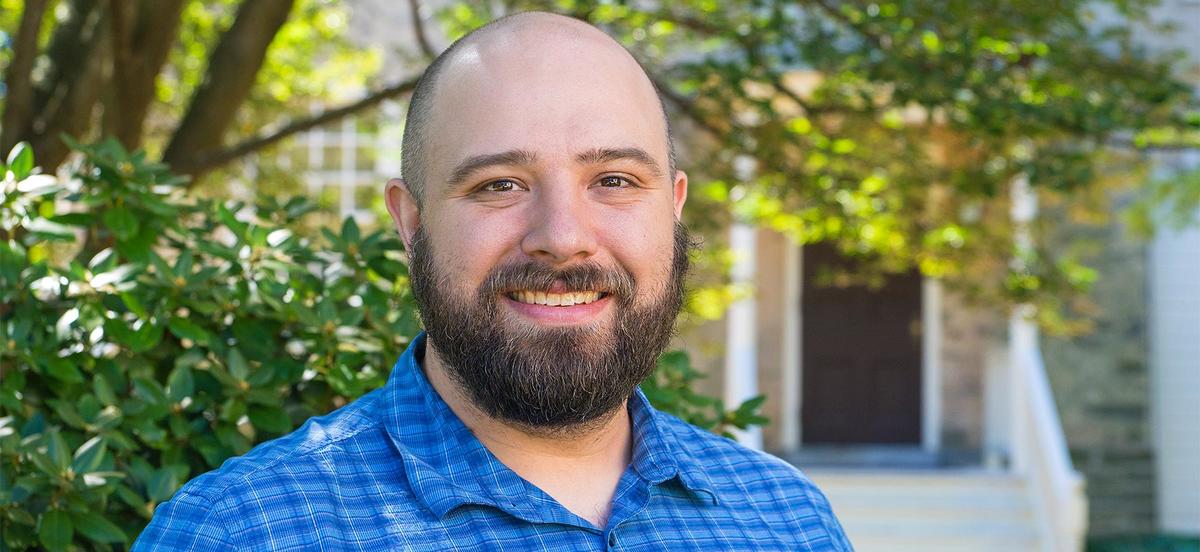Ted Brzinski Awarded National Science Foundation CAREER Grant

Assistant Professor of Physics and Astronomy Ted Brzinski's NSF CAREER award will fund a project that uses topology, the mathematical field concerned with the shared properties of groups of shapes, to understand why granular materials are rigid. Photo by Patrick Montero.
Details
The assistant professor of physics and astronomy earned a five-year $689,561 grant to support his research on topological assessments in granular materials.
Assistant Professor of Physics and Astronomy Ted Brzinski has been awarded a grant from the Faculty Early Career Development Program (CAREER) of the National Science Foundation. It is the NSF’s most prestigious award in support of early-career faculty who have the potential to serve as academic role models in research and education and to lead advances in the mission of their department or organization.
“I feel like I'm about to set out on a grand adventure!” he said. “I have the privilege, for the next five years, of pursuing ideas which have been bouncing around my skull for years.”
Brzinski’s $689,561 award is for his project, “"CAREER: Topological Assessment in Granular Materials,” which borrows tools and ideas from mathematics to understand why granular materials, such as sand, are rigid.
“Granular materials are deceptively challenging for scientists to explain,” said Brzinski, because they can flow like a liquid when poured and support weight and hold shape like a solid. “The internal structure of rigid granular solids is disordered, like a liquid, and scientists haven't found any structural hallmark that we can tie to a phase transition between the rigid and flowing states. This grant will allow me to look for those structural signals, not in the spatial arrangement of the grains, but in the patterns of forces between the grains.”
To do so, he will use topology, the mathematical field concerned with the shared properties of groups of shapes.
“Perhaps the pattern of forces in granular systems which are rigid belong to a different set of groups than those which are not, but this is a challenging idea to test: the shapes you get when you map out all the forces in a sandpile are incredibly complex” he said. “Some of this depends on how you draw your force map, which is one of the areas where I think I have some new contributions to make.”
Brzinski will test these ideas experimentally by measuring all of the forces in a granular system. “That's tricky,” he said, “but we have a nifty trick which lets us take a picture where the forces inside the material control how much light reaches the camera. In fact, we're hoping to take such images of some of the largest systems ever studied with this technique!”
He credits Josh Sabloff, the J. McLain King 1928 Professor in Mathematics, and recent grad Carter Patterson '20 with helping him refine the ideas that went into his NSF proposal; it was Patterson’s thesis work last year, in fact, that led to much of the project’s preliminary results. Brzinski also thanked his friend and collaborator, RIT’s Scott Franklin; his postdoctoral advisor, Karen Daniels; his Ph.D. advisor, Doug Durian; and the other faculty members of Haverford’s Department of Physics and Astronomy.
“This victory is also part of a long tradition of Haverford physicists finding success thanks to the support of our brilliant colleagues and amazing students,” said Brzinski. “I hope the work I'm able to do because of this award contributes somewhat to that tradition.”



